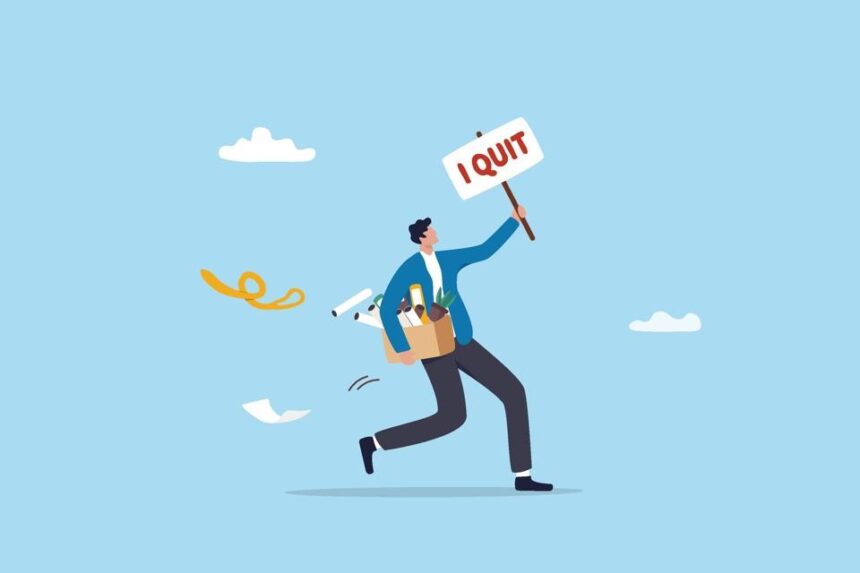Why High Performers Leave And What Leaders Miss Until It’s Too Late: You might not even notice initially, because it starts subtly. A top performer becomes quieter in meetings. They stop volunteering for projects. Their energy shifts. And then one day, you get the resignation email, and you never saw it coming. If you think this is rare, think again. According to McKinsey, 40% of workers globally say they are at least somewhat likely to leave their job in the next three to six months, and many of those walking away are high performers. High performers are often the ones you least expect to lose because they are the ones you depend on most. They consistently deliver. They rarely complain. But they also tend to leave quietly when they feel overlooked, under-challenged, or taken for granted. So why high performers leave is a question leaders need to answer long before the exit interview.
Why High Performers Are Not Always The Loudest Voices at Work
Unlike disengaged employees who may openly vent their frustrations, high performers tend to keep going until they no longer can. They often internalize stress, mask dissatisfaction with productivity, and remain outwardly professional until the day they resign. Leaders who rely on surface-level signals miss the deeper story. What high performers really need is not more praise, but more purposeful stretch. They want their work to matter. And while they may not demand it, they notice when others with lower output receive more attention. That slow erosion of fairness and challenge becomes the beginning of the end.
Quiet Quitting: Why High Performers Leave Their Jobs In Silence
The biggest myth in retention is that high performers will always speak up. The reality is, they often feel they cannot. When someone has a reputation for always delivering, they may worry that expressing burnout or boredom will be met with confusion or disappointment. So, they stay silent. And eventually, they go. This is a core reason why high performers leave without warning. There were no complaints, no missed deadlines. Just a growing disconnect between effort and fulfillment. Leaders assume everything is fine, not realizing that high performers are masters at appearing fine while already plotting their next move.
What High Performers Really Want (And Are Not Getting)
In exit interviews, high performers often cite a lack of growth, recognition, or clarity about their future. But those things are just the surface-level symptoms. What they are really looking for is trust, relevance, and a sense of impact. They want to know that what they do makes a difference. That their time and ideas matter. And that the organization sees them not just for what they have done but for what they could do next.
Leaders often make the mistake of giving more work to high performers without giving more opportunity. Being the go-to person for tough projects can feel like a compliment, until it becomes a trap. Eventually, what once felt like a privilege begins to feel like exploitation. The key is to pair expectations with elevation.
How Leaders Can Spot The Warning Signs From High Performers
There are often subtle but clear signs that a high performer is starting to disengage, which can help you understand why high performers leave:
- They stop proactively offering ideas.
- They become less interested in cross-functional efforts.
- Their tone becomes transactional instead of invested.
- They stop asking about what’s next.
If you are seeing these behaviors, stop pushing harder and start to listen deeper. Ask better questions. Create space for curiosity. And check in with the intention to understand, not just to manage.
Why Exit Interviews Come Too Late
By the time a high performer is explaining their reasons for leaving, it is no longer to give feedback. By then, it is about closure. Leaders who rely on exit interviews to gather insights are missing the point. What matters more are the conversations that happen before someone starts looking. Rather than think of retention as a post-mortem, it’s important to think of it as a constant practice. Make career development conversations routine, not reactive. Instead of assuming satisfaction, ask questions like: What part of your work feels most energizing right now? What do you wish you could spend more time doing? What do you want to learn next? These questions open doors before people close them.
The Leadership Mistake That Costs You High Performers
The cost of losing a high performer goes beyond replacing them, because it impacts momentum, morale, and institutional memory. These are the people others look to for standards. When they leave, it sends a message. Either the company does not value excellence, or they do not recognize strain until it is too late. Both are dangerous messages to send.
Leaders often think retention is about engagement, but for high performers, it is more often about alignment. Is this still the right place for me to grow? Do I still feel proud of what I do? Do I trust my leader to advocate for my future?
What You Can Do Today to Prevent Why High Performers Leave
If you want to keep high performers, do not wait for the annual review. Start now:
- Recognize effort publicly and potential privately.
- Give space for challenge, not just completion.
- Ask about career goals more than once a year.
- Match responsibilities with growth opportunities.
- Make it safe to share ambition, not just gratitude.
Companies need to give their employees reasons to stay. High performers do not want to be managed. They want to be seen, supported, and stretched. When they are, they thrive.
High Performers Will Not Wait To Be Noticed
The best time to check in with your top talent is before they go quiet. High performers are not immune to doubt. They just hide it better. In a time when competition for talent is intense and top contributors have more options than ever, the leaders who win are those who notice early, ask often, and lead with intention. Losing a high performer is not always preventable, but you shouldn’t have it take you by surprise.
Credit: Forbes.com








